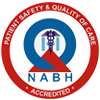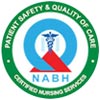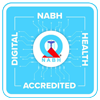
What Is A Pediatric Cardiologist?
November 01, 2023
Pediatric cardiologists are heart doctors who work with children. Their practice is different from that of heart doctors who treat adults. Pediatric cardiologists primarily treat problems with a child’s heart's structure or rhythm.What Does A Pediatric Cardiologist Do?
Pediatric cardiologists look for heart issues using tools such as echocardiogram, electrocardiogram, and imaging tests. They look for problems in the heart's formation or in the way it beats. Children may see a pediatric cardiologist if they have issues such as chest pain, dizziness, or fainting, and the doctor rules out heart issues. Pediatric cardiologists treat children with both congenital (present from birth) and acquired heart problems. Like other pediatricians, they normally see children until the age of 18 or sometimes 21.Reasons To See A Pediatric Cardiologist
Reasons why your child might need to see a pediatric cardiologist include:Critical Congenital Heart Defects
Around 40,000 American children are born each year with a congenital heart defect (CHD). About a quarter of CHDs are serious. Often a baby with a CHD needs surgery in the first year of life. Doctors diagnose some heart problems when the baby is still in the womb, usually using a technique called fetal echocardiogram. Other cardiac issues aren't diagnosed until after a baby is born, sometimes later.Other Congenital Heart Defects
Some CHDs aren’t considered critical. For example, small atrial and ventricular septal defects, commonly known as hole-in-the-heart defects, may never cause problems and may close up on their own. Larger ones are more likely to need surgery.Genetic Conditions With Cardiac Involvement
Several genetic syndromes typically include heart problems. Among these are Down syndrome, Marfan syndrome, Turner syndrome, and Williams syndrome. Children with these syndromes are likely to need a pediatric cardiologist.Arrhythmia
Arrhythmias are disorders of the electrical system that makes the heart beat. They involve a heartbeat that is too fast, too slow, or irregular. Some arrhythmias, like premature contractions, are common and usually not serious. Others can be serious and may need treatments including medication or an implanted device such as a pacemaker. SVT (supra ventricular tachycardia) is one of the more common arrhythmias seen in children).Recent Blogs
- Factors Contributing to Infertility
- Advantages of Robotic Surgery
- What is Robotic Surgery? Conditions Where Robotic Surgery Can Be Used
- Robotic Surgical Systems
- Types of Robotic Surgeries
- Causes of Male and Female Infertility
- What Is Male Infertility? Treatments For Male Infertility
- Superfoods That Can Boost Your Chances of IVF Success
- 5 Myths Over IVF
- What Are The Do’s And Don’ts For The Embryo Transfer Process?
- What are the different Cardiology Subspecialties?
- What is the difference between Invasive, Non Invasive and Interventional Cardiology?
- What is the difference between Cardiologist and Cardiothoracic Surgeon?
- What Are the Different Types of Heart Surgery and Their Purposes?
- Types of nuclear cardiology tests
2023
- December (6)
- November (8)
- Cardiac Catheterization: When Is It Required?
- Types Of Pediatric Cardiology Test
- Tips For Preventing Heart Problems In Kids
- Advances In The Diagnosis Of Congenital Heart Disease In Children
- Signs Of Heart Problems In Children
- What Is A Pediatric Cardiologist?
- Understanding Congenital Heart Defects In Children
- Pediatric Cardiac Surgery: Types And Considerations
- September (7)
- Lifestyle Changes To Prevent Diabetes
- New Innovative Advances In Diabetes Treatment
- The Link Between Obesity And Diabetes
- Monitoring Blood Sugar At Home
- The Importance Of Regular Diabetes Check-ups
- Understanding Diabetes: Types, Causes, Symptoms & Treatment
- Lower Blood Sugar Naturally: Managing Blood Sugar Through Diet
- August (8)
- What’s The Difference Between A Neurologist And Neurosurgeon?
- Dementia: Causes, Symptoms, Diagnosis And Treatment
- Seizures: Causes, Symptoms, Diagnosis And Treatment
- Epilepsy: Causes, Symptoms, Diagnosis And Treatment
- Is Autism A Neurological Disorder? Causes, Symptoms & Diagnosis
- Pediatric Neurology: Neurological Disorders In Pediatrics
- What Are The Most Common Neurological Disorders?
- Types Of Neurosurgery: Overview, Procedure & Costs
- July (11)
- Types of Cardiac Stents
- Types of nuclear cardiology tests
- What Are the Different Types of Heart Surgery and Their Purposes?
- What is the difference between Cardiologist and Cardiothoracic Surgeon?
- What is the difference between Invasive, Non Invasive and Interventional Cardiology?
- What are the different Cardiology Subspecialties?
- What Are The Do’s And Don’ts For The Embryo Transfer Process?
- 5 Myths Over IVF
- Superfoods That Can Boost Your Chances of IVF Success
- What Is Male Infertility? Treatments For Male Infertility
- Causes of Male and Female Infertility
- April (4)
- March (1)
-

Share with us
Click Here -

Organ Transplantation
Click Here
Copyrights © 2025 PSG Hospitals. All Rights Reserved.








